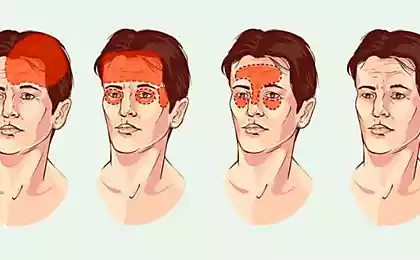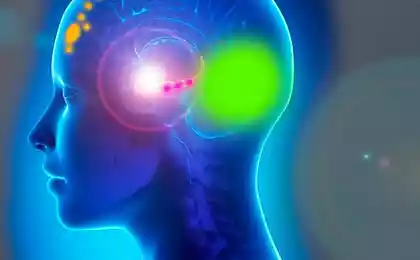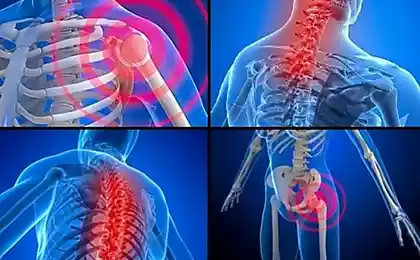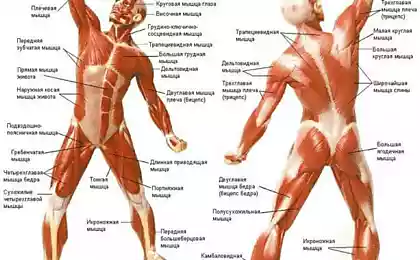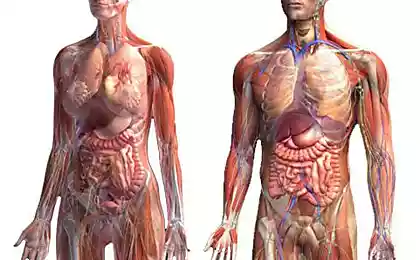541
"Subject 1" is unable to feel pain
Apparently, the matter genah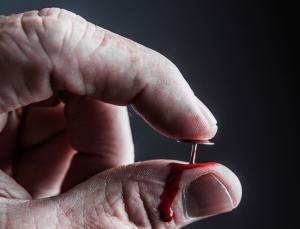
The study involved a girl or a woman under the pseudonym code "Subject-1", unable to feel pain. This is a dangerous condition because it suffered several serious injuries of the head, face and knee, which she broke several times. All these facts are confirmed by photographs.
She is the bearer of rare mutant gene that scientists could not find in any database of the human genome. Researchers believe that this particular mutation makes the "Subject 1" impervious to pain.
For "Subject-1" this conclusion is the hope that if the basis for most of its symptoms is a single gene, the researchers will be able to come up with a drug to inactivate specific protein produced by her body. Its genome can also form the basis for the future of analgesics for the treatment of chronic pain of others. But while the means to address its problems do not exist.
The mutated gene was discovered by scientists analyzing its own genome and the genome of her parents. The researchers compared the genes of family members to multiple databases of the human genome, for example, "1000 genomes' comprising all the genes of 1092 persons from 14 generations. Scientists have identified a genetic mutation that is manifested only in the "Subject-1" and no one else.
The mutation affected a gene SCN11A, produces a protein that controls the amount of sodium released and absorbed by cells in the human body. Nerves have a lot of sodium channels that are used by the body to decide whether to send a signal to the brain - to transmit, for example, a message about the pain or to access memory. The particular type of sodium channel "Subject-1" differs from channels other people, replete with pain receptors - the type of nerves that and feel the pain.
The researchers then analyzed the genes of 58 people with a reduced perception of pain. They found one man or boy, called "subject 2" having the same mutation as the "Subject-1". Both people are unable to feel pain from the birth, and both a few times accidentally applied harm your body - even the broken bones themselves. Their wounds heal slowly, their muscles are weaker than those of ordinary people, and besides, they have huge problems with digestion - they have to have a four times a day at fixed time.
To test their hypothesis, the researchers introduced a mutated gene laboratory mice. From 101st mice received a gene SCN11A, 11 wounds inflicted itself. When the researchers introduced mice with a chemical for which the swollen legs, these mice legs are not cherished. Mutated mice were able to withstand much higher temperatures than normal mice, before you start to show signs of discomfort, and their intestines are not working as well as normal mice.
This indicates that the health problems of "The subjects 1 and 2" is really caused by an unusual mutation, and shows that the causes of most diseases in the same mutations.
via factroom.ru

The study involved a girl or a woman under the pseudonym code "Subject-1", unable to feel pain. This is a dangerous condition because it suffered several serious injuries of the head, face and knee, which she broke several times. All these facts are confirmed by photographs.
She is the bearer of rare mutant gene that scientists could not find in any database of the human genome. Researchers believe that this particular mutation makes the "Subject 1" impervious to pain.
For "Subject-1" this conclusion is the hope that if the basis for most of its symptoms is a single gene, the researchers will be able to come up with a drug to inactivate specific protein produced by her body. Its genome can also form the basis for the future of analgesics for the treatment of chronic pain of others. But while the means to address its problems do not exist.
The mutated gene was discovered by scientists analyzing its own genome and the genome of her parents. The researchers compared the genes of family members to multiple databases of the human genome, for example, "1000 genomes' comprising all the genes of 1092 persons from 14 generations. Scientists have identified a genetic mutation that is manifested only in the "Subject-1" and no one else.
The mutation affected a gene SCN11A, produces a protein that controls the amount of sodium released and absorbed by cells in the human body. Nerves have a lot of sodium channels that are used by the body to decide whether to send a signal to the brain - to transmit, for example, a message about the pain or to access memory. The particular type of sodium channel "Subject-1" differs from channels other people, replete with pain receptors - the type of nerves that and feel the pain.
The researchers then analyzed the genes of 58 people with a reduced perception of pain. They found one man or boy, called "subject 2" having the same mutation as the "Subject-1". Both people are unable to feel pain from the birth, and both a few times accidentally applied harm your body - even the broken bones themselves. Their wounds heal slowly, their muscles are weaker than those of ordinary people, and besides, they have huge problems with digestion - they have to have a four times a day at fixed time.
To test their hypothesis, the researchers introduced a mutated gene laboratory mice. From 101st mice received a gene SCN11A, 11 wounds inflicted itself. When the researchers introduced mice with a chemical for which the swollen legs, these mice legs are not cherished. Mutated mice were able to withstand much higher temperatures than normal mice, before you start to show signs of discomfort, and their intestines are not working as well as normal mice.
This indicates that the health problems of "The subjects 1 and 2" is really caused by an unusual mutation, and shows that the causes of most diseases in the same mutations.
via factroom.ru
